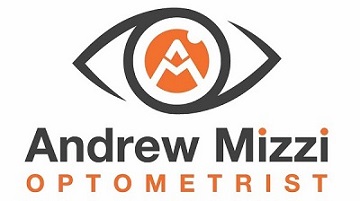 Glaucoma is often called the “silent thief of sight” because it can develop gradually without noticeable symptoms. By the time vision loss becomes apparent, the damage is often irreversible.
Glaucoma is often called the “silent thief of sight” because it can develop gradually without noticeable symptoms. By the time vision loss becomes apparent, the damage is often irreversible.
However, with early detection and proper management, vision loss from glaucoma can be slowed or even prevented.
What is Glaucoma and Its Causes?
Glaucoma is a group of eye conditions that damage the optic nerve, which is responsible for transmitting visual information from the eye to the brain. This damage is often caused by increased pressure inside the eye, known as intraocular pressure (IOP). If left untreated, glaucoma can lead to permanent vision loss.
Common causes and contributing factors include:
- Elevated Eye Pressure: Excess fluid in the eye can increase pressure, leading to optic nerve damage.
- Ageing: People over the age of 40 are at a higher risk.
- Family History: Genetics play a significant role in glaucoma risk.
- Medical Conditions: Conditions such as diabetes and high blood pressure can increase the likelihood of developing glaucoma.
Early Signs of Glaucoma
In the early stages, glaucoma often presents no symptoms, making it difficult to detect without a comprehensive eye exam. However, as the condition progresses, some signs may include:
- Gradual loss of peripheral (side) vision
- Blurred vision or difficulty focusing
- Seeing halos around lights
- Eye pain or pressure (in certain types of glaucoma)
Because symptoms can be subtle, regular eye exams are essential for early detection and treatment.
Types of Glaucoma and Their Symptoms
There are several types of glaucoma, each with distinct characteristics and symptoms:
- Primary Open-Angle Glaucoma: The most common type, it develops slowly and painlessly, gradually affecting peripheral vision.
- Angle-Closure Glaucoma: This type can develop suddenly, causing eye pain, nausea, and rapid vision loss, making it a medical emergency.
- Normal-Tension Glaucoma: Even with normal eye pressure, damage to the optic nerve can still occur, often linked to poor blood flow.
- Congenital Glaucoma: Present at birth, this rare form affects infants and young children, often showing signs such as cloudy eyes or excessive tearing.
Understanding these types can help in recognising potential symptoms and seeking timely care.
How to Detect Glaucoma Early at Andrew Mizzi Optometrist
Early detection is key to managing glaucoma effectively and reducing the risk of vision loss. Regular comprehensive eye exams are the most reliable way to detect glaucoma before noticeable symptoms develop.
During an eye exam, an optometrist may perform tests such as:
- Tonometry: Measures intraocular pressure (IOP) to detect elevated levels.
- Optic Nerve Assessment: Examines the health of the optic nerve for early signs of damage.
- Visual Field Test: Evaluates peripheral vision to identify any blind spots caused by glaucoma.
- OCT Imaging: Provides detailed images of the optic nerve to track changes over time.
Scheduling routine eye tests can help catch glaucoma in its early stages, allowing for prompt treatment.
Best Treatments for Glaucoma in Kingswood, Penrith
While glaucoma cannot be cured, various treatment options can help slow its progression and protect vision:
- Prescription Eye Drops: Reduce eye pressure by improving fluid drainage or decreasing fluid production.
- Oral Medications: In some cases, oral medications may be prescribed to lower intraocular pressure.
- Laser Therapy: Procedures such as selective laser trabeculoplasty (SLT) can improve fluid drainage.
- Surgery: In more advanced cases, surgical procedures may be required to relieve eye pressure and prevent further damage.
Your optometrist will recommend the most appropriate treatment plan based on your specific needs and the type of glaucoma you have.
Glaucoma Prevention Tips
Although glaucoma cannot always be prevented, these steps can help reduce your risk:
- Get regular eye exams, especially if you have a family history of glaucoma.
- Avoid smoking and limit caffeine intake, as they can contribute to elevated eye pressure.
- Take breaks from screens to reduce eye strain and maintain eye comfort.
- Engage in outdoor activities with protective eyewear to reduce UV exposure, which can contribute to eye strain and related conditions.
Visit a Glaucoma Optometrist in Kingswood, Penrith, NSW
At Andrew Mizzi Optometrist, we provide comprehensive glaucoma screenings and personalised eye care to help protect your vision. Visit us at Kingswood, Penrith to schedule your next eye exam.
